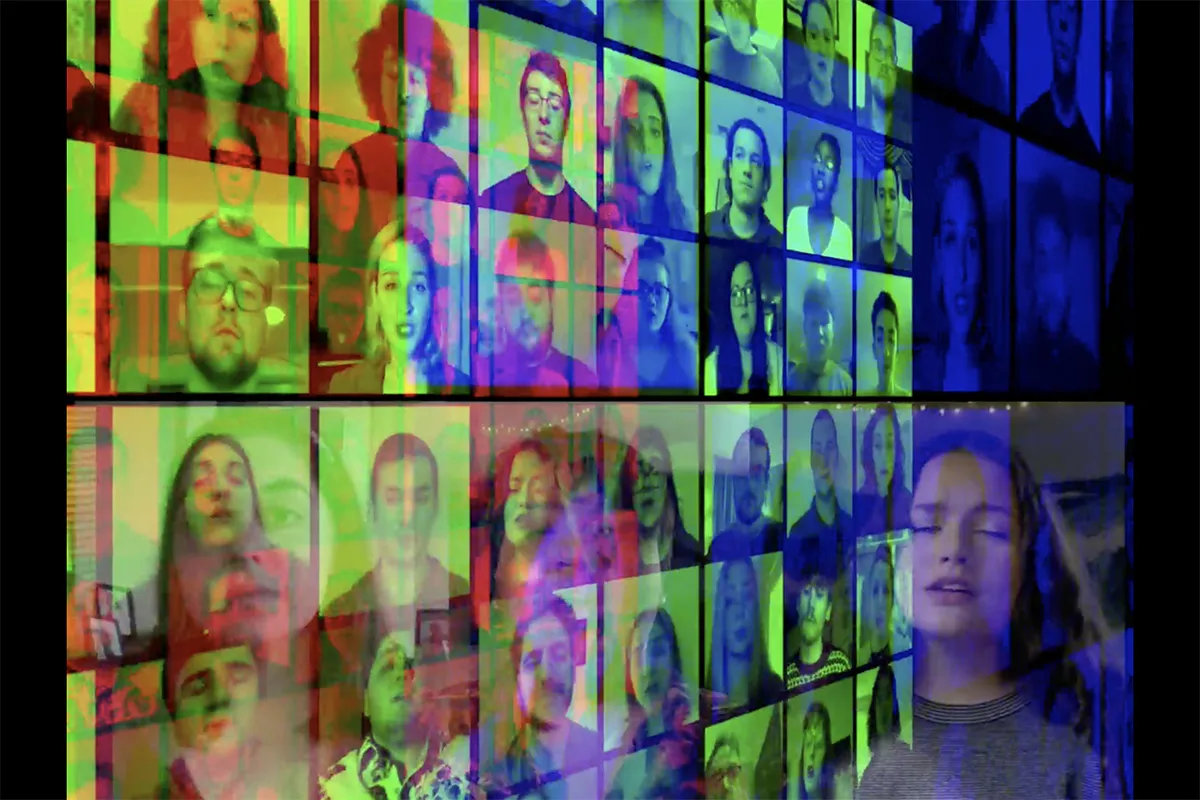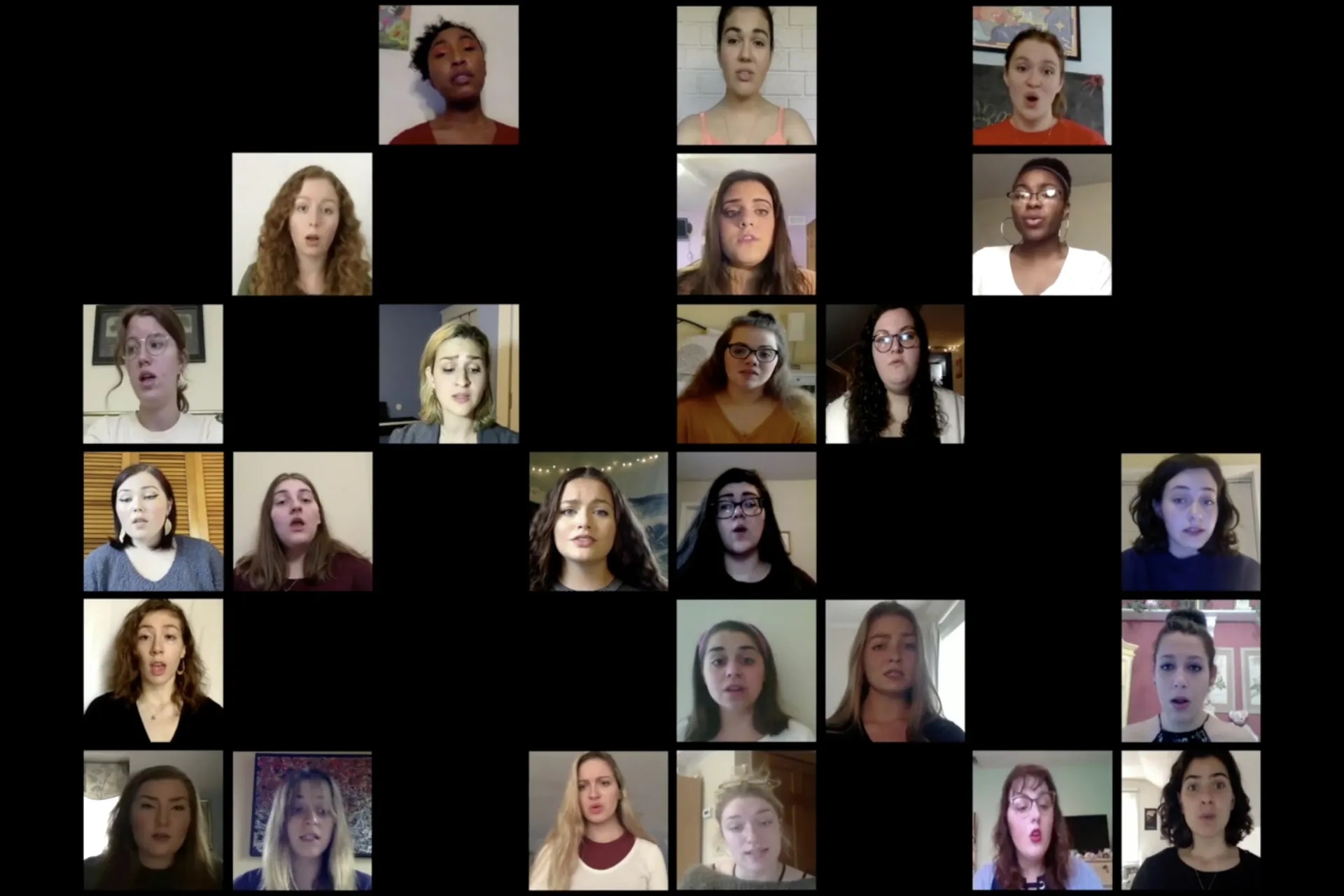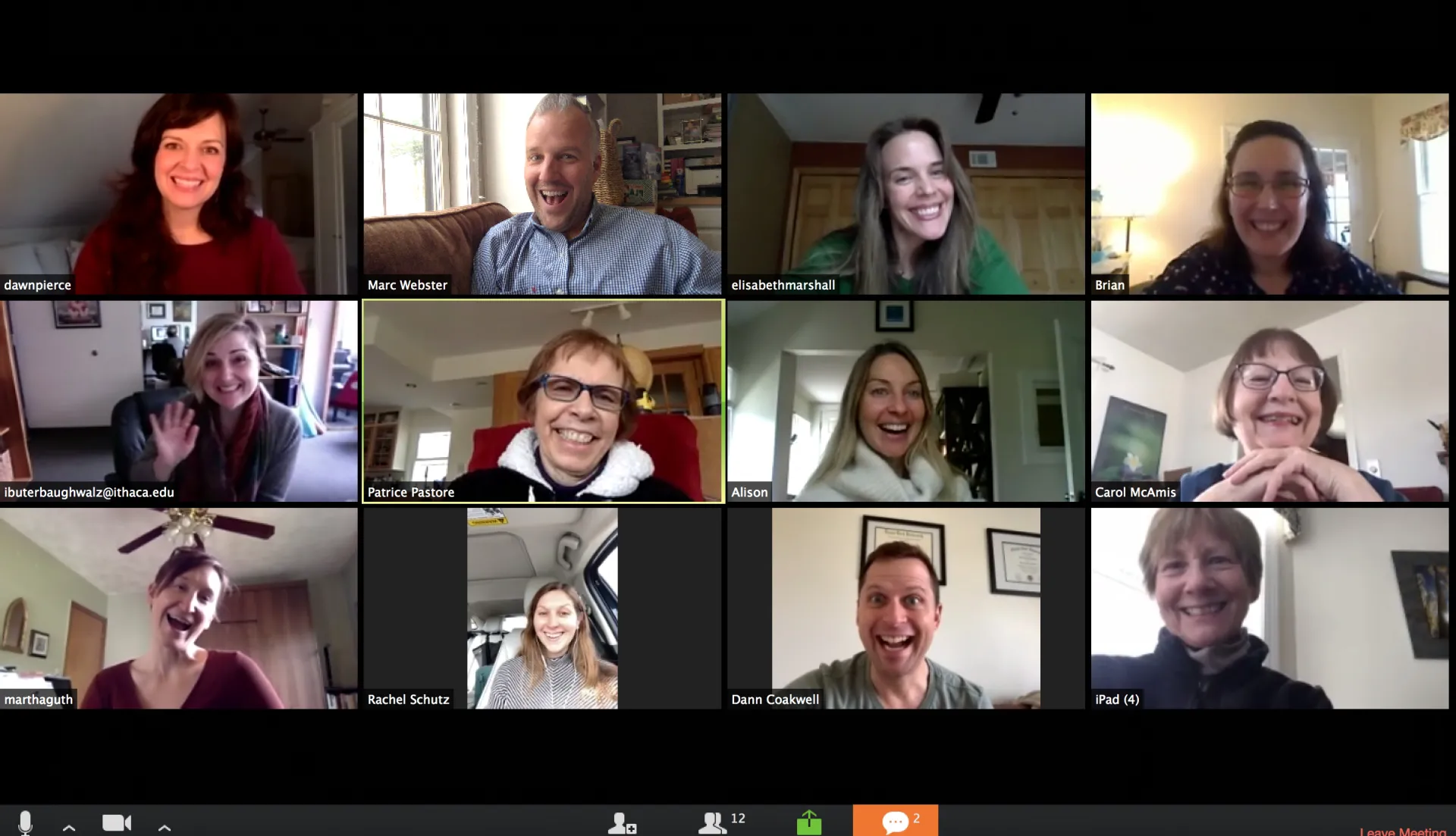As graduation edged closer with online classes ending, Willa Capper ’20 worried she would miss the signature ritual that every senior in the Ithaca College Treble Chorale has enjoyed for nearly 40 years.
At their last rehearsal, members of the chorale would surround the graduating seniors and sing “Irish Blessing,” a piece based on a poem ending with the line, “Until we meet again my friend, until we meet again...” Yet while rehearsals on campus had ended, Capper was able to sing the traditional send-off in a virtual concert presented in a livestream the week before graduation.
“It felt like we were all together again, even though we weren’t together,” said Capper, a vocal music education major who watched the concert from her home in suburban Philadelphia. “It was really good to hear everyone’s voices again.”




